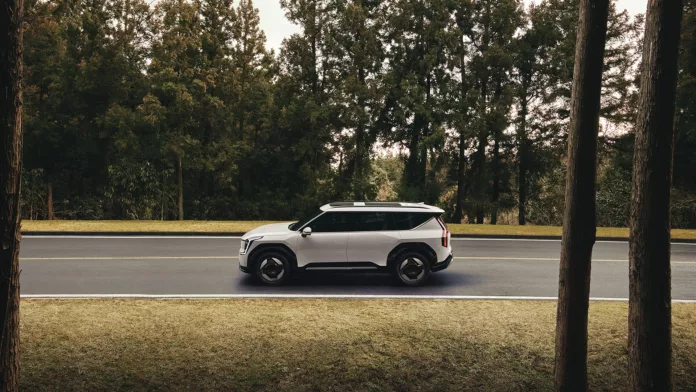The automotive industry is abuzz with speculation about who will take the throne in the electric vehicle (EV) segment. The rivalry is intense, with Tesla and BYD frequently trading places at the top. Meanwhile, a host of Chinese contenders is also vying for supremacy. In stark contrast to American automakers, which appear to be retreating from their ambitious EV plans, the Hyundai Motor Group, inclusive of Hyundai and Kia, is advancing steadily towards electric excellence without making headlines.
Current EV Market Dynamics
The EV landscape is brimming with potential, yet it’s not without its hurdles. Kia recently shed light on the market’s complexities, acknowledging that the anticipated boom in EV demand is facing headwinds. Economic fluctuations, diminishing government incentives, and the slow development of infrastructure could dampen growth. To counteract these challenges, Kia is diversifying its offerings, boosting its hybrid models to nine by 2028—further cementing its commitment to a green future.
Hyundai’s Electric Vision Takes Shape
Hyundai, a critical player within the Hyundai Motor Group umbrella, is enjoying an electric surge that contrasts with the retreat seen elsewhere. The brand has notably developed an Ioniq 5-based robotaxi that surpassed the requirements to earn a driver’s license. On another electrifying note, Hyundai is gearing up to launch a dedicated racing series for electric vehicles with the eN1 race car, an evolution of the Ioniq 5 designed specifically for the track.
Kia’s Electric Roadmap and Innovations
Investing in the Electric Future
Kia is charting a course distinct from but aligned with Hyundai’s aspirations under their shared parent, HMG. They’re both built on the revered Electric-Global Modular Platform (E-GMP). At a recent Investors Day event, Kia recalibrated its EV strategy in response to market changes, aiming to bolster its role as a visionary in the mobility sector. The CEO, Ho Sung Song, emphasized Kia’s strategy shift towards fostering innovation and solidarity with customers and the community at large.
Kia’s ambitions include launching 15 EV models by 2030, targeting 1.6 million in annual sales. They foresee a total sales volume of 4.3 million vehicles, encompassing a wide array of powertrains. Additionally, what sets Kia apart is its focus on Purpose-Built Vehicles (PBVs), which are designed for specific applications beyond personal transport, such as robotaxis and delivery vehicles.
Reimagining Transportation with PBVs
Pioneering in versatility, Kia’s PBVs boast a “Easy Swap” feature that allows for rapid, modular transformations of the vehicle’s function. This innovative concept echoes the Nissan Pulsar’s adaptability from the late 70s but takes it a step further, promising a future where a single vehicle can serve multiple roles—from a commuter car to a cargo van. Employing “Dynamic Hybrid” construction without traditional welding methods, this modular design blends durability with adaptability.
Advancing Purpose-Built Vehicles
Kia’s rollout of its PBV lineup is strategically phased. 2025 marks the arrival of the Kia PV5, enhancing connectivity and laying the groundwork for software-defined fleets. The company expects PBVs to contribute a significant portion of its EV revenue by the end of the decade. The Investors Day event also unveiled new electric prospects, including the EV2, part of a fleet aiming to cement Kia’s innovation and global presence.
Kia’s Commitment to Electric Growth
Kia’s strategy doesn’t stop at models; the company is also enhancing its technology. By improving battery performance, ensuring cost-effectiveness, and expanding global charging networks, Kia is taking decisive steps to secure its spot in the electric revolution.
Conclusion: Hyundai Motor Group’s Quiet Confidence
While there’s much fanfare about the electric car revolution, Kia and Hyundai are the composed contenders amidst the chaos. Their methodical and strategic approach hints at a strong potential to emerge as leaders in the EV space. At Hyundai Motor Group, acclaim for electric vehicles is matched by consumer satisfaction. This duo’s journey is akin to a horserace, with all eyes on them to possibly outpace the competition and snag a top spot amid the electric frenzy.


























